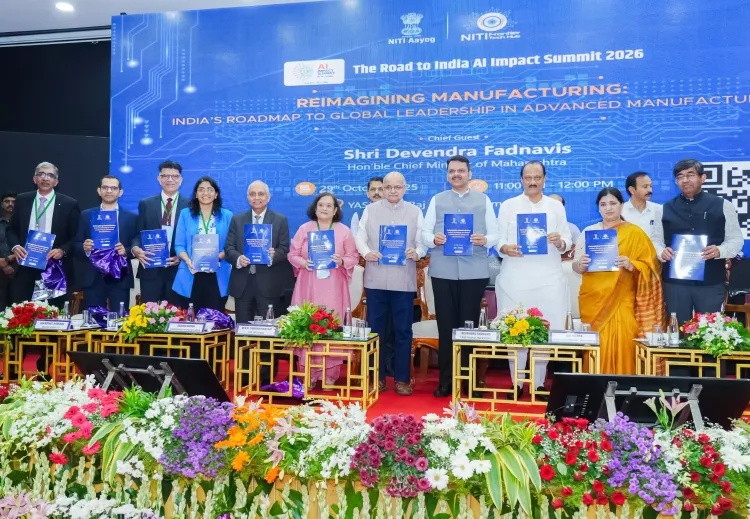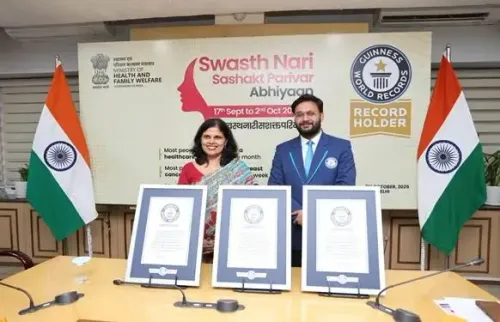Can Frontier Tech Propel Manufacturing to 25% of GDP and Create 100 Million Jobs?

Synopsis
Key Takeaways
- Frontier technologies like AI and Robotics are key to boosting India's manufacturing sector.
- India aims to contribute over 25% to GDP by 2035.
- More than 100 million jobs could be created through this initiative.
- Maharashtra is taking the lead in aligning with the National Mission on Manufacturing.
- Failure to adopt these technologies could mean losing $270 billion by 2035.
Mumbai, Oct 29 (NationPress) By leveraging frontier technologies such as AI, Advanced Materials, Digital Twins, and Robotics, the manufacturing sector can significantly boost India’s GDP by over 25 percent, leading to the creation of more than 100 million jobs and establishing the country as one of the top three global hubs for advanced manufacturing by 2035 in pursuit of a Viksit Bharat by 2047, according to a report from NITI Aayog released on Wednesday.
The NITI Aayog Frontier Tech Hub introduced a comprehensive roadmap titled "Reimagining Manufacturing: India’s Roadmap to Global Leadership in Advanced Manufacturing." This document identifies Artificial Intelligence, Machine Learning, Advanced Materials, Digital Twins, and Robotics as pivotal enablers, outlining their implications across 13 key manufacturing sectors.
Unveiled by Maharashtra Chief Minister Devendra Fadnavis, Deputy Chief Minister Ajit Pawar, and NITI Aayog CEO B.V.R. Subrahmanyam, the roadmap delineates a focused strategy to harness frontier technologies and enhance India’s manufacturing competitiveness.
Fadnavis expressed appreciation to NITI Aayog for crafting this visionary plan aimed at boosting Bharat’s manufacturing sector, emphasizing that Pune has been designated to spearhead this initiative.
He stated, "Maharashtra aims to be the first state to align fully with the National Mission on Manufacturing and establish itself as a global hub for advanced manufacturing."
Subrahmanyam remarked that India's economic growth is fundamentally linked to the robustness of its manufacturing sector, asserting that mere incremental changes will not suffice.
"This roadmap lays out a clear, time-sensitive pathway to becoming an Advanced Manufacturing Powerhouse by 2035, integrating frontier technologies to instill precision, resilience, and sustainability into our manufacturing foundations, thereby creating a globally competitive 'Made in India' brand," he explained.
However, the roadmap also warns that India could miss a critical opportunity if it fails to adopt essential frontier technologies in high-impact sectors, potentially resulting in a loss of $270 billion by 2035 and $1 trillion by 2047 in additional manufacturing GDP.
"The time to act is limited, and transformation requires a reimagining of the entire ecosystem. By embedding technology into our industrial fabric, we can elevate manufacturing’s GDP contribution to 25 percent by 2035, generate millions of high-quality jobs, and transform our factories into symbols of innovation and national strength," stated Debjani Ghosh, Distinguished Fellow at NITI Aayog.









